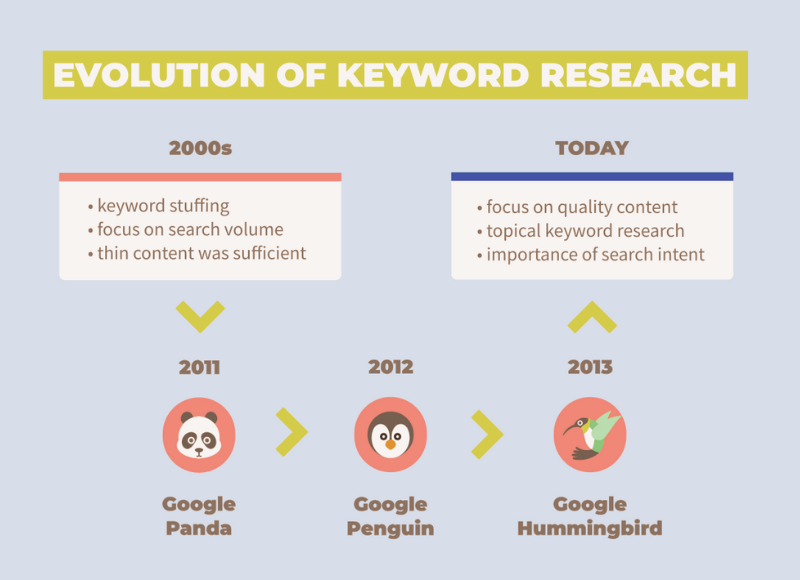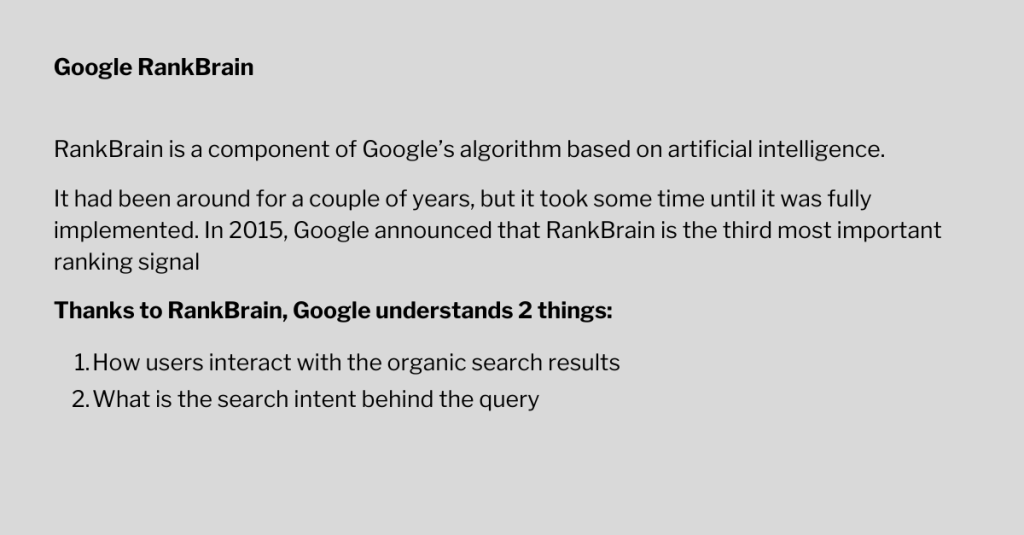KEYWORD RESEARCH FOR SEO
Keyword research is crucial for SEO, but you might wonder: How do I discover keywords and what comes next? Join us in this comprehensive 5 Lesson guide where we’ll walk you through each step of the process. Let’s dive in and learn together!
Keyword research basics
Before delving into details, let’s first explore the fundamental terms and concepts related to keyword research in SEO
WHAT ARE KEYWORDS?
Keywords, also known as ‘SEO keywords,’ are the words or phrases users input into search engines to locate specific information online.
These keywords serve as pathways guiding individuals to organic search results and ultimately to websites where they discover relevant content.
This underscores the significance of identifying appropriate keywords in SEO. By identifying phrases commonly used by your target audience, you can tailor your content strategy and optimization efforts to target these phrases. This, in turn, enhances your website’s ranking and attracts more visitors.
The process of uncovering keywords is known as keyword research.
What is keyword research?
Keyword research involves the SEO practice of identifying, analyzing, and incorporating the phrases individuals utilize to search for information online.
Simply put, it’s about understanding the language your potential audience employs and leveraging this understanding to enhance your content optimization.
WHY to do keyword research?
Given its significance as a primary SEO task, it serves as an effective means to expand your content’s reach to a wider audience.
HOW to do keyword research?
Don’t fret; this guide is here to assist you. Keyword research doesn’t require advanced expertise. Once you grasp the fundamentals and familiarize yourself with proven strategies, along with some
handy tips and tricks, you’ll be well-equipped to tackle it with ease! 😉
WHEN to do keyword research?
Keyword research typically serves as the initial stage of search engine optimization for any website.
You’ll find yourself conducting keyword research when:
- Exploring a new niche
- Seeking fresh content concepts
- Enhancing your current content
WHO should do keyword research?
Any website owner, blogger, online marketer or SEO specialist.
A brief history of keyword research
Over time, the methodology behind keyword research has undergone significant evolution.
In the 2000s, it was common practice to rely on tools like Google Keyword Planner to identify keywords with high search volumes and incorporate them heavily into website content.
However, this approach had its drawbacks, as it often resulted in the manipulation of search rankings through low-quality content. In response, Google implemented numerous algorithm updates aimed at better understanding user intent and delivering high-quality search results.
These pivotal algorithm updates have fundamentally shaped the approach to keyword research:
- Google Panda – has penalized thin, low-quality content and duplicate text
- Google Penguin – has penalized unnatural usage of keywords
- Google Hummingbird – has improved semantic search and focus on search intent

Today, keyword research extends beyond merely identifying the “right” keywords and tactically positioning them.
Google’s capacity to grasp user search intent is advancing, with its core aim being to deliver content that most effectively meets users’ requirements.

Essentially, keyword research is progressing towards a more topical strategy. It’s no longer solely about identifying a single perfect keyword; it’s about fully grasping the audience and thoroughly covering the subject.
To simplify – by thoroughly covering a topic, you may rank for keywords not explicitly mentioned in the text! (We’ll explore this further in Lesson 2 – How to find keywords
This change doesn’t lessen the significance of keyword research; instead, it evolves its approach from traditional methods.
Stages of keyword research
For the purpose of this guide, I have divided the whole process into 3 main steps:
- Finding the keywords
- Analyzing the keywords
- Using the keywords

In the next four parts of our journey, we’ll delve into exciting territory, exploring advanced strategies and techniques to elevate your keyword research game.
Get ready to uncover the secrets behind in the upcoming articles
Lesson 2: How to find keywords
Lesson 3: How to analyze keywords
Lesson 4: How to use keywords
Lesson 5: Keyword research test
Stay tuned for an insightful and actionable exploration that will empower you to optimize your content like never before!
Stay in the Know: Join Our Exclusive Newsletter Community and Unlock a World of Insights, Tips, and Exciting Updates. Subscribe Now for Your Digital Advantage!



